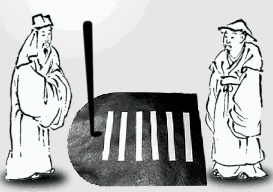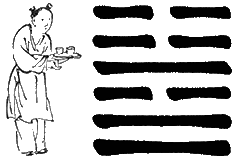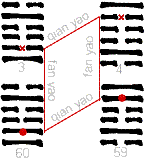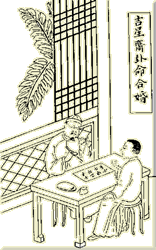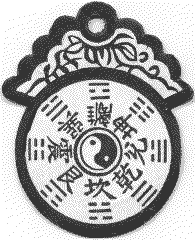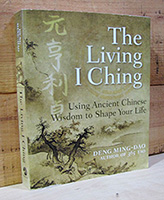I Ching, Yijing or Zhou Yi
"Oracle of the moon": © 2000 LiSe
 Yi Jing, Oracle of the Moon
Yi Jing, Oracle of the Moon

Ask the Oracle
First time above 90.000 visitors/month!
Shenshu hardcover book
(Order the hardcover book here)
Luoshu Trigram Oracle
What is the Luoshu Oracle
(All oracle-consulting: © 2010 Emanuele, Italy)
NEW Tarot.Pro
(© Martijn de Grunt 2024)
The construction of Yi's answer
(All texts © LiSe 2004-2024)
to maintain this website
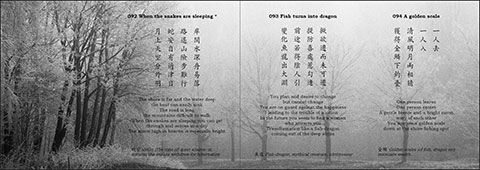
ShenShu (hardcover)
Click on the image for information and pictures.
Order here
From sundial GUI to
hexagram GUA
Moving lines and their relations
Etymology and meaning of characters
The characters of their names with their real meanings

The colors of the trigrams according to their frequency.
The Bagua pattern
for the hexagram lay-out
and a Bagua-reading

My reason for making this website
Ancient Chinese characters are ideograms, containing several images. When a problem arises, these characters give a wide field of meaning when used in an answer, either literally or as a random text. Since Quantum mechanics tells us that random may not be that random, it is possible to build an oracle with this language. The Yijing (or I Ching) is exactly that. It has been used for around 3 millennia by rulers, generals and later also by common people.
About multiple and random answers for a problem, see 'Design Thinking'. Compare it to standing on a certain ridge in the Alps. When spitting to the right it will end up in the Donau, spitting to the left will end up in the Rhine. "Random" is like that ridge, it adds another way of thinking to your regular paths, and it combines the two in your subconscious: the source of genuine and innovative creativity.
I love the old characters but my aim is this real creativity. I want to share it so others can benefit from it.
It is an associative way of reading, in contrast to the analytical way of understanding a text, an explanation or interpretation.
Finding back the associative way and restoring it to its rightful place is the future
of humanity and the basis of feminism. It is a huge but neglected skill. The analytical skill is extremely useful, but can cause disaster without its counterpart.


